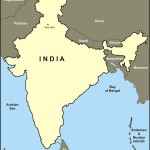
One thing which stands out about media in Kashmir is that journalism here isn’t predominantly a family business. Instead, young boys and girls are drawn towards journalism as it’s a challenging profession where one can excel through dedication and hard work. However, due to lack of guidance and absence of any meaningful form of constructive interaction, budding scribes are deprived of a chance to improve their professional capabilities. To make matters worse, some influential scribes intentionally vitiate the environment just to further their own vested interests, and what’s been happening in Kashmir Press Club is a classic example of the same.
Press clubs are basically meeting places where scribes get together to interact and discuss various issues and thus gain from each other’s experience. Elected functionaries and senior journalists ensure that the atmosphere in the press club is such that it encourages free and frank exchange of ideas. Accordingly, any actions or words that reflect personal prejudices and inflated egos are taboo. Unfortunately, the way Kashmir Press Club has been politicised and functioning arbitrarily is an antithesis of the laid down and cherished journalistic objectives.
It was former Chief Minister Mufti Mohammad Sayeed who mooted the idea of setting up Kashmir Press Club (KPC) and was formally given its shape by his daughter Mehbooba Mufti, who as chief minister was instrumental in allocating the space in the posh area of Srinagar. Senior journalist Salim Pandit, who was the prime mover of the press club creation campaign and had enlisted hundreds of scribes was nominated interim president. However, some vested interests within the media ensured that he was removed and through brazen manipulation, put into a place an ‘elected’ body of their own choice.
The Kashmir Press Club made headlines, albeit for the wrong reasons. Rather than providing balanced reports, its motivated press releases incited sensationalism and followed a single-point agenda of only finding fault with the establishment and government. Coming from a Press Club, it’s highly subjective and biased observations were taken at face value by bloggers and provided India baiters the very material they required for carrying out their nefarious campaign to defame the country.
While its professional functioning left much to be desired, the functionaries and management of Kashmir Press Club also failed miserably on the administrative side. It never made any serious attempt to achieve its objectives like providing relief to ordinary and honorary members and/or their families in indigent circumstances, providing to the extent feasible and at reasonable charges temporary lodging and allied facilities for visiting journalists and disallowing unlawful activities at the premises and misuse of funds provided by Government of India.
Its activity, which was bare minimal after March 2018, came to a virtual standstill on March 10, 2019, when the publishers of daily newspapers whose advertisements were banned following anti-government and separatists press releases, used the space to protest in the premises. While the affected publishers were well within their rights to protest against what they perceived to be injustice against them, but to drag into this is not in keeping with the ethics of journalism as it betrays an anti-government bias, which is least expected from responsible media.
Post August 5, 2019, the press club ceased to involve members in any activity on the pretext of curbs. However, its president and members continued to work for the national televisions and dailies, while local newspapers printed all the editions without any hassles from their offices. Its activities restarted almost a year after in February 2020 when it issued a statement purportedly detailing alleged harassment of journalists by police. Pertinently, one of the journalists named in the statement by KPC, sought clarification and a rebuttal for mentioning his name. “Please correct the line. I was not beaten by anyone. I was just there covering the event. Thanks…” were his words, which was an indirect but stern reminder to the Press Club President that he should check facts before issuing the statement. Pertinently, all the statements were issued by anonymous spokesman while the office bearers never owned these releases by being signatory with their names.
The biggest issue which confronted most of the journalists in Kashmir was the naming and shaming of their names through ‘Kashmir Fight’ blog– https://kashmirfight.wordpress.com/—which has been posting and issuing threats and mudslinging journalists from across the border as established by Jammu and Kashmir police. One of its targets was senior journalist Shujaat Bukhari, who was assassinated in broad daylight on the eve of Eid at Srinagar’s Press Enclave in 2018. A self-made man, Bukhari was the voice of scribes who hailed from far flung areas of rural Kashmir and provided them jobs in his newspaper. Regrettably, KPC and its management body never raised a voice against those spreading canard and lies through ‘Kashmir fight’ blog leave aside issuing a press release of condemnation and protecting those who were maligned for being impartial and objective in reporting. Another KPC disservice was evident when young special correspondent Mudasir Ali died during Covid-19 pandemic in 2020. Even though he had worked as a journalist in a local English daily for 16 years, KPC failed to provide succor in any form to his kin, forcing them to approach the court. For any press club this should have been a matter of utter disgrace, but KPC remained unmoved by this unexpected human tragedy.
For journalists, facts are sacred and comments free, but in Kashmir the truth has always been the casualty with the result that while vested interests continue to enjoy patronage of the few elites of fourth estate in Kashmir, those who report honestly and work sincerely without any extraneous prejudice or influence are left out in the cold. This sets a bad precedent for young journalists as they are unable to fathom this manipulation and unwittingly develop a mindset full of hatred and hypocrisy.




